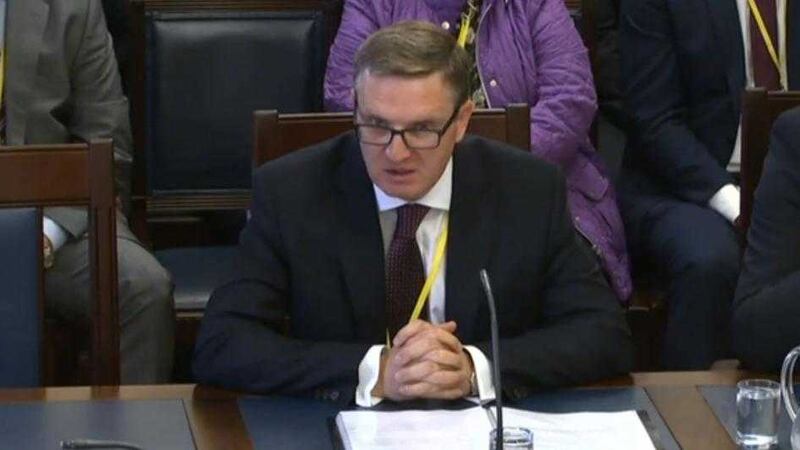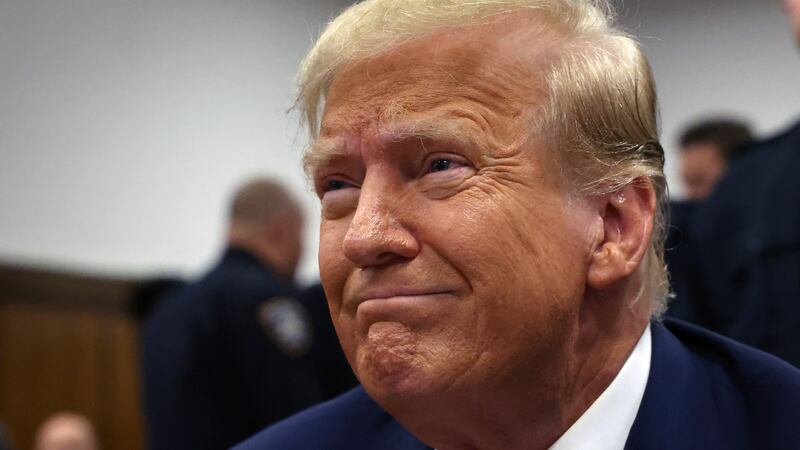A BELFAST businessman says he has reported "inappropriate political and potentially unlawful banking relationships" to US financial regulators amid the north's Nama scandal.
Gareth Graham was giving evidence yesterday to a Stormont inquiry into the £1.3bn sale by the Republic's 'bad bank' of its Northern Ireland property loan portfolio.
The probe was launched following sensational allegations made in the Dáil in July that a northern politician was to personally benefit from the deal.
Loans held by Mr Graham's property companies were within the portfolio purchased last year by US investment fund Cerberus.
Mr Graham told the committee he has tapes of phone calls stretching to hundreds of hours that show an "ingrained culture of inappropriate and possibly illegal conduct which stretches across political, legal, banking and accountancy sectors".
The businessman said he has spoken with the British National Crime Agency, and is set to make a criminal complaint to the PSNI.
"I have also complained to the Securities and Exchanges Commission in Washington DC as to the inappropriate political relationships and potentially unlawful banking relationships which are disclosed in these recordings."
Mr Graham said he has tapes of thousands of phone calls made by Frank Cushnahan, a businessman who worked with him and was later a Nama adviser.
The tapes were made between 2005 and 2008 when Mr Cushnahan worked with the Graham family's bookmaking business. Calls were recorded for regulatory reasons.
Mr Graham said he has listened to recorded calls between Mr Cushnahan and people including bankers, solicitors and politicians.
When asked if Northern Ireland politicians could be heard on the tapes, Mr Graham said he did not wish to give details.
But he added: "We believe that there exists a criminal conspiracy against my family and my companies, and as such we are in the process of formulating a criminal complaint."
Law enforcement agencies would be given access to the tapes, the committee was told.
The business relationship between the Grahams and Mr Cushnahan broke down in 2008.
Mr Graham claimed Mr Cushnahan was then "intent on destroying our businesses", and his firms were wrongly taken into Nama following his former colleague's "malevolent" influence.
Referring to one tape recording, he said: "Frank Cushnahan said 'thank God I am worth a good few quid elsewhere... my shareholdings will be worth sweet f*** all by the time I am finished'."
Mr Graham, a member of the Sean Graham bookmaker family, told the finance committee Mr Cushnahan had retained a five per cent stake in his property companies.
He claimed that should have led to a declaration of interest by Mr Cushnahan when he became a member of the Nama Northern Ireland advisory committee.
Mr Cushnahan has previously issued a statement to the media denying any wrongdoing.
He said he gave up the property firm interests and that it was due to an "administrative error" that he was still listed as a shareholder.
Mr Graham is fighting a High Court battle in an attempt to win back control of his firms.
He told the committee they should not have been placed in Nama.
He claimed Cerberus had been "ruthless, unjust and unreasonable" in demanding repayments of £33m within 24 hours following a series of brief meetings.
Cerberus then appointed administrators and receivers to his companies.
Nama (National Asset Management Agency) was set up by the Irish government to clear property loans from bailed out lenders.
Independent TD Mick Wallace claimed in the Dáil that a £7m offshore account linked to the Northern Ireland property portfolio deal was earmarked for a northern politician or political party.
A criminal investigation led by the British National Crime Agency has been launched following the allegations.
It has meant the Stormont inquiry has been constrained in the questions it can ask to avoid prejudicing the criminal probe.
Last week the Law Society told the finance committee it was unable to give "substantive evidence" following advice from a senior police officer.








